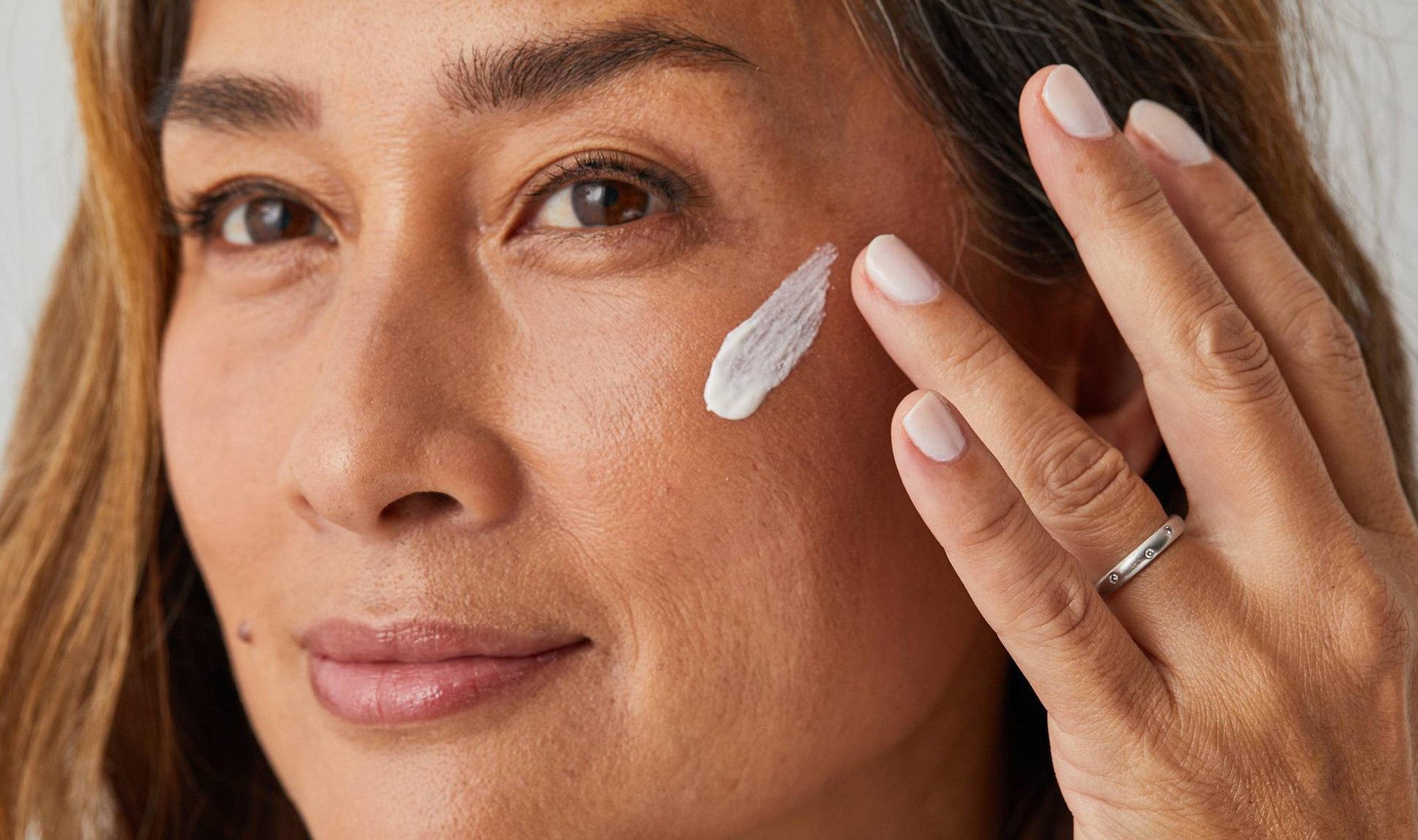A good night skincare routine is crucial for rejuvenating your skin and ensuring it stays healthy and glowing. While we sleep, our skin works to repair itself, making it the perfect time to nourish and hydrate. Here’s a step-by-step guide for a night skincare routine tailored to every skin type.
Step 1: Double Cleansing
Why it’s important: Cleansing is the first and most important step to remove dirt, oil, makeup, and impurities that accumulate on your skin throughout the day.
- For Oily/Acne-Prone Skin: Use a gentle oil-based cleanser first to remove excess oil and makeup, followed by a water-based gel cleanser to deeply cleanse your pores.
- For Dry Skin: A creamy or hydrating cleanser works best to avoid stripping the skin of its natural moisture.
- For Sensitive Skin: Opt for a mild, fragrance-free cleanser that is gentle on the skin, avoiding harsh exfoliating cleansers.
Step 2: Toner
Why it’s important: Toner helps balance the skin’s pH level and prepares it for better absorption of serums and moisturizers.
- For Oily Skin: Look for a toner with ingredients like witch hazel or salicylic acid to control excess oil and minimize pores.
- For Dry Skin: Opt for a hydrating toner with ingredients like glycerin or aloe vera to replenish moisture.
- For Sensitive Skin: Choose an alcohol-free toner with calming ingredients like chamomile or rose water.
Step 3: Serum
Why it’s important: Serums contain concentrated ingredients that target specific skin concerns, such as fine lines, acne, or pigmentation.
- For Oily Skin: Use a lightweight, oil-free serum with niacinamide or salicylic acid to control oil and reduce blemishes.
- For Dry Skin: Go for a hydrating serum with hyaluronic acid or vitamin E to deeply moisturize and plump the skin.
- For Sensitive Skin: Look for soothing serums containing ingredients like calendula or centella asiatica to calm irritation and redness.
Step 4: Treatment Masks (Optional)
Why it’s important: Treatment masks offer targeted benefits and can be added 2-3 times a week for extra skincare. These can address concerns such as acne, dryness, or dullness.
- For Oily Skin: Clay or charcoal masks help absorb excess oil and prevent breakouts.
- For Dry Skin: Hydrating masks with ingredients like honey, avocado, or glycerin provide intense moisture.
- For Sensitive Skin: Look for calming masks with ingredients like aloe vera or oatmeal to soothe inflammation.
Step 5: Eye Cream
Why it’s important: The delicate skin around your eyes requires special care. An eye cream helps reduce puffiness, dark circles, and fine lines.
- For Oily Skin: A lightweight gel-based eye cream with caffeine can help reduce puffiness.
- For Dry Skin: Opt for a richer eye cream with hydrating ingredients like peptides and hyaluronic acid to target dryness and fine lines.
- For Sensitive Skin: Choose an eye cream that is fragrance-free and contains soothing ingredients like chamomile or cucumber.
Step 6: Moisturizer
Why it’s important: Moisturizing locks in all the benefits from previous steps and helps to keep the skin hydrated overnight.
- For Oily Skin: Use an oil-free, gel-based moisturizer that provides hydration without making your skin greasy.
- For Dry Skin: Choose a thicker, cream-based moisturizer that provides intense moisture and helps repair the skin barrier.
- For Sensitive Skin: Opt for a gentle, fragrance-free moisturizer that won’t irritate the skin.
Step 7: Spot Treatment (Optional)
Why it’s important: If you have acne or blemishes, spot treatment can target specific areas to treat breakouts overnight.
- For Oily/Acne-Prone Skin: Use a treatment with benzoyl peroxide or salicylic acid to target acne directly.
- For Sensitive Skin: Go for a gentler spot treatment with tea tree oil or sulfur that doesn’t irritate the skin.
Step 8: Overnight Mask (Optional)

Why it’s important: An overnight mask can provide intense hydration and skin repair while you sleep.
- For Oily Skin: Opt for a lightweight, oil-free overnight mask that won’t clog pores.
- For Dry Skin: Look for a nourishing overnight mask with ingredients like shea butter, hyaluronic acid, or ceramides to lock in moisture.
- For Sensitive Skin: A soothing overnight mask with calming ingredients like chamomile or aloe vera helps reduce irritation.
Step 9: Lip Care
Why it’s important: Don’t forget your lips! The skin on your lips is delicate and needs hydration.
- For All Skin Types: Apply a nourishing lip balm or lip mask to keep your lips soft and hydrated overnight.
Final Tips for Your Night Skincare Routine:
- Consistency is Key: Follow this routine every night for best results. Give your products time to work; you should notice improvements after a few weeks.
- Don’t Overdo It: Less is more when it comes to skincare. Avoid layering too many products to prevent irritation or clogged pores.
- Stay Hydrated: Drink plenty of water during the day to help your skin stay hydrated from the inside ou
Also Read : Why Vitamin C Serum Is a Must-Have for Sensitive Skin Lovers



